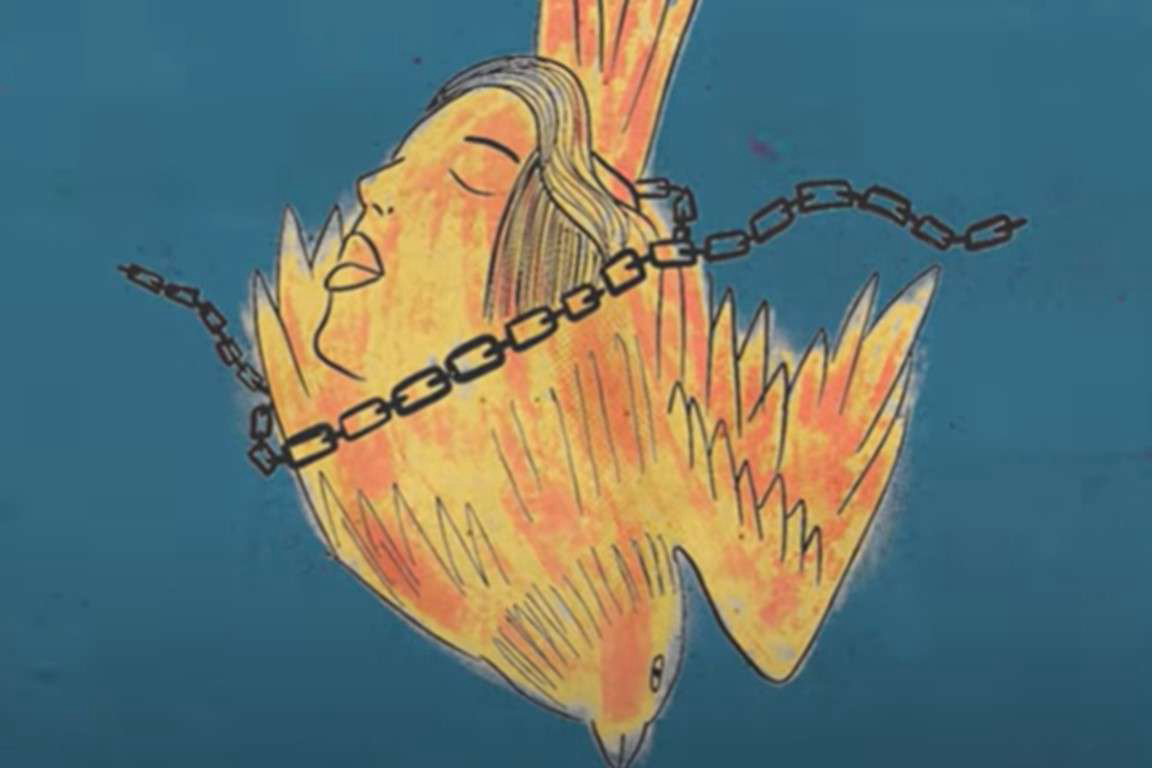
Anita Bhatia, The Deputy Executive Director of United Nations Women said in an interview, "The very technique we are using to protect people from the virus can perversely impact victims of domestic violence." [1].
When the lockdowns were announced by most of the countries all over the globe, as a precaution against the ongoing Covid 19 pandemic, it emanated mixed feelings in people especially that of vexation and worry. Individuals were expected to confine themselves in their houses in order to comply with the norm of social distancing which was supposed to help in reaching the ultimate goal of flattening the curve. Since the lockdown, the graph of Covid cases have peaked but so have the rates of domestic violence.
So, what is domestic violence? When an abuser physically, emotionally, sexually or verbally harasses another person that they share a relationship with, in a domestic setting could be labelled as domestic violence. Domestic violence particularly against women and the rates have drastically spiked up since the lockdown.
One in three women according to the UN Women experienced domestic violence even before the Pandemic. Domestic violence, also being known as the “Shadow Pandemic” along Covid-19 is being experienced by women globally. In United Kingdom, a 25 per cent rise in calls and online requests for help was observed by National Domestic Abuse helpline, since the lockdown was imposed. In the United States, there was an increase in the number of purchases of arms and guns since lockdown which indicated the increase of violence faced by women at home and their need to protect themselves in order to feel safe. The Chief of National Commission for Women India, Rekha Sharma reported that from March 24 till April 1, 69 cases were reported and the number is increasing by day. Sharma also mentioned that the true number of cases is higher but women are afraid of their abuser at home which prevents them from filing a complaint. The number of calls received by helplines in China tripled since the lockdown and Australia has the highest number of searches regarding domestic violence help in the past five years [2]. As of April 2020, Singapore saw an increase of domestic violence reports and calls by 33 per cent, France 30 per cent and Argentina 25 per cent [3].

Economic instability is one of the unfortunate and major consequences of the pandemic which has put everyone under pressure especially the working class and the bread winners of the family. People either lost their jobs or started to get paid less. Men bring home their frustrations and tend to take it out on their significant others and even their children. Men very often depend on alcohol to abate their levels of frustration but during the lockdown with all stores closed and no access to alcohol only worsened the situation by increasing their exasperation. Over consumption of alcohol as a result of being at home all day with no employment also has the same consequences of domestic violence act being performed.
Out of 14.3% victims who sought help, only 7% of them contact relevant authorities like the police, doctors, lawyers or social welfare organisations. More than 90% of the victims turn to their immediate family members to seek help. With the imposed curfews and lockdowns, women are not able to step out of their houses and visit their family where they can find comfort [4]. As a result of physical and sexual abuse, many victims sustain injuries but are unable to get them treated especially during the pandemic as the hospitals are overwhelmed and also unsafe.
Many women were forced to give up their jobs due as well to the increase in household responsibilities. Women find themselves in a bigger quandary as they need to take care of their responsibilities at work too with equal commitment. With endless responsibilities on their shoulders, women are also expected to help bring down the frustrations of their significant others.
Countries have taken measures to provide help to the domestic violence victims. Helplines have been established to cater to the needs of the victims and provide them with help they require at all times. There are shelters which have been built to protect the impacted victims of violence at home but unfortunately shelters are refusing intakes because of the risk of spread of infection. In Spain’s Canary Islands, The Institute for Equality launched a campaign called Mascarilla-19 (Mask-19), where a victim can go the pharmacy their homes and ask the chemist for Mascarilla-19. The chemist will then note down the details of person. This mask can save their lives [5]. While on a video call with a family member or friend, the victim can use a While on a video call with a family member or friend, the victim can use a signal which involves holding up the hand up to the camera with the thumb tucked into the palm and then holding the fingers down to trap the thumb. It is hard to speak about domestic abuse to another person on a call especially while the abuser is around and use of this sign could be of immense help [6].

While we fear the virus outdoors, our homes are supposed to keep us safe but unfortunately this is not the case for women with abusive partners. In my many households, behind the facades, terrible cases of domestic violence against women and children are taking place. Human always wants power so they try to exercise it on those that they consider are weaker and inferior to them. The act of domestic violence is mainly for power and pleasure and not a necessity. We all have been overpowered by the virus and times like these require unity. If there is bad, there is also good. Do not hesitate and ask for help because you are a survivor, not a victim. You are not alone.
